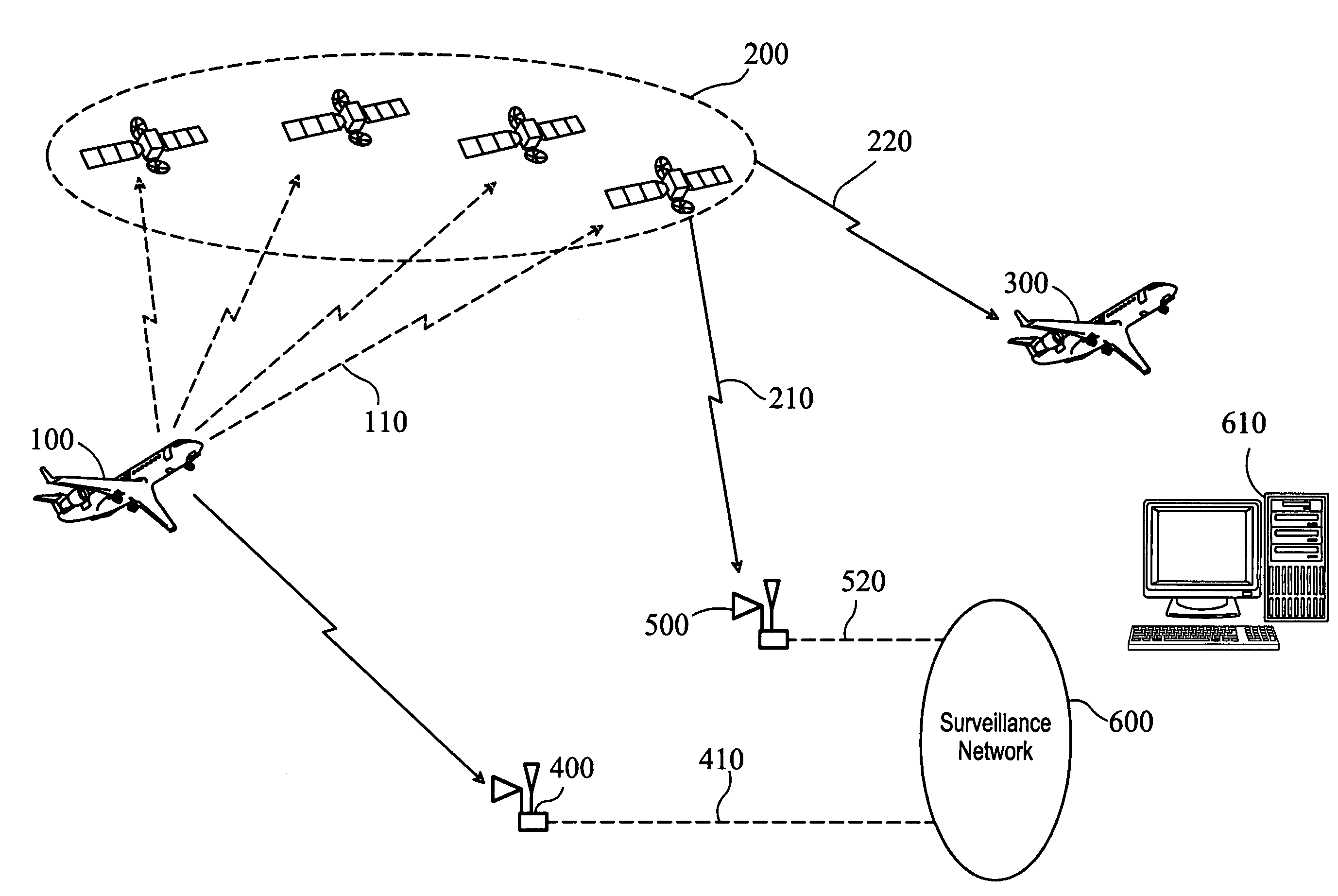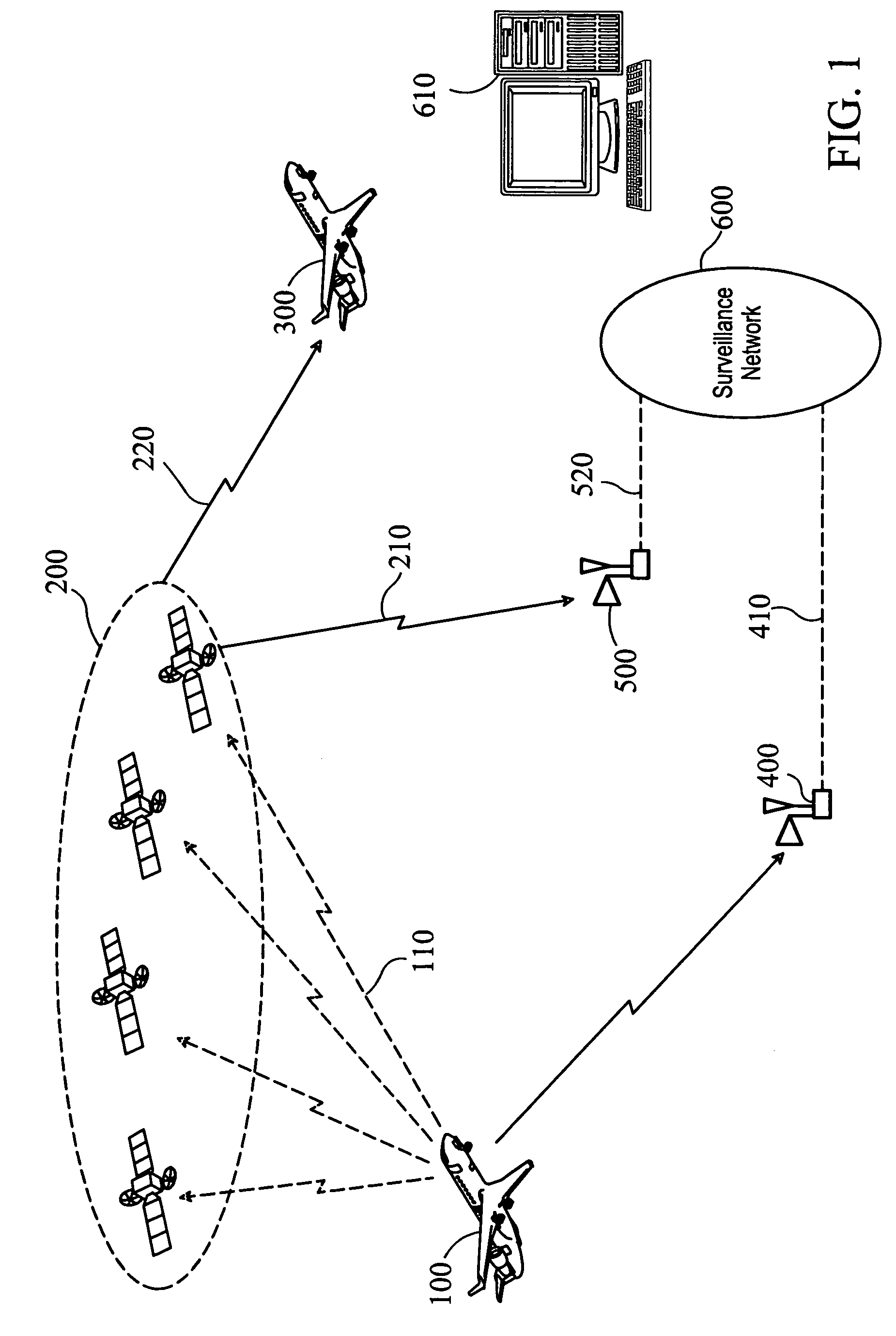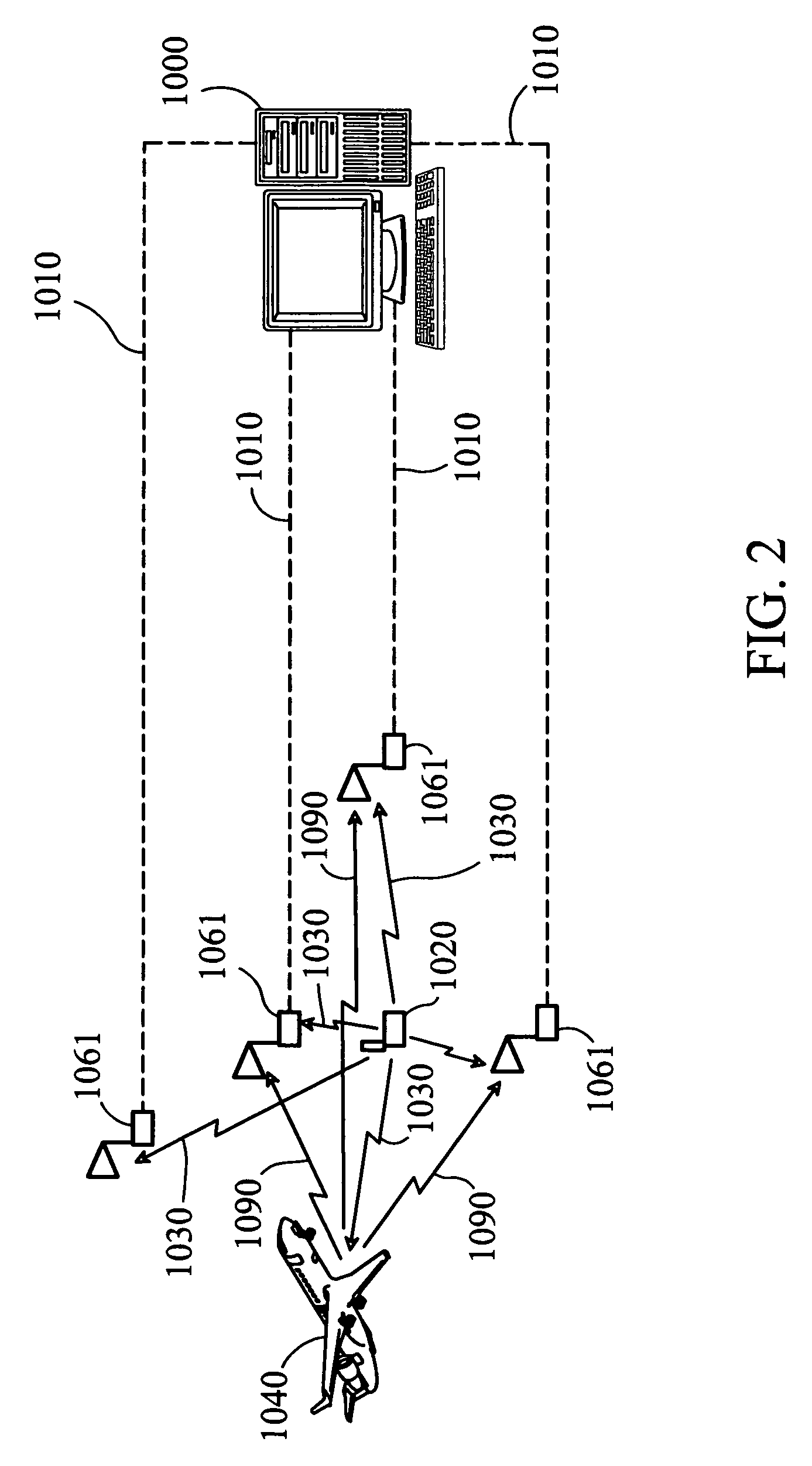Method and apparatus for ADS-B validation, active and passive multilateration, and elliptical surviellance
a technology of active and passive multilateration and elliptical surveillance, applied in direction finders, direction finders using radio waves, instruments, etc., can solve the problems of practical limitations of extensive fixed multilateration and elliptical systems deploymen
- Summary
- Abstract
- Description
- Claims
- Application Information
AI Technical Summary
Benefits of technology
Problems solved by technology
Method used
Image
Examples
first embodiment
[0038]FIG. 1 is a block diagram of the present invention, illustrating an aircraft 100 emitting various signals, which may include ADS-B, DME, Mode S and various other communications, navigation, and surveillance signals. Aircraft 100 may send self-reported position data to ADS-B receiver 400 which may then communicated the position data 410 to a surveillance network 600. Surveillance network 600 makes available the self-report and independently calculated report to various users 610 where they may be compared and alerts generated in the case of discrepancies. A ground-based station 610 mat then compare self-reported position data with other sources, to determine whether the self-reported position data is accurate.
[0039]Radio signals 110, output from aircraft 100, may also be received by several LEO satellites, and the time-stamped information then used to multilaterate the 3-D geometric position of the aircraft. Multilateration may be performed by the space element (e.g., on one or...
second embodiment
[0041]FIG. 2 is a block diagram illustrating the present invention, illustrating dynamic interrogation. Transmission of interrogation occurs (from interrogator 1020) but time of transmission and position of transmitter are not known and must be determined (1030 MHz Mlat, elliptical ranging, 1090 MHz ADS-B, ADS-C, etc.). Interrogation signal 1030 is received at receivers 1061 and received signals 1010 are sent to central server 1000. Central server may not be physically connected to interrogator 1020 in any way but may be used to compute the position of the interrogator at the time of transmission and the time of transmission.
[0042]Once position and time of transmission of interrogator 1020 has been determined by server 1000, responses from interrogated targets 1040 can be determined through receipt of their response 1090 using the central server to compute position from signals received at receivers 1061.
[0043]Interrogator 1020, targets 1040, and receivers 1061 can be moving or fixe...
third embodiment
[0051]FIG. 4 is a block diagram of this third embodiment of the present invention, illustrating an aircraft 2010 emitting ADS-B signals which are received, time stamped and decoded at receiver 2020 before being passed to the central system processor 2030. The server, knowing the location of the receiver 2020 and the reported position of the aircraft 2010, can calculate the time that the signal originated from the aircraft by calculating and deducting the time taken for the signal to travel from aircraft 2010 to receiver 2020 from the time stamp applied by receiver 2020 when it received the signal.
[0052]Knowing the (fixed) position of receiver 2040, the server can work forward and calculate the time the signal should reach receiver 2040 and compare this time to the time stamp applied by receiver 2040 when the signal actually reaches the receiver.
[0053]If the difference in these two times is outside of a pre determined acceptable level of error, the system can indicate that the data s...
PUM
 Login to View More
Login to View More Abstract
Description
Claims
Application Information
 Login to View More
Login to View More - R&D
- Intellectual Property
- Life Sciences
- Materials
- Tech Scout
- Unparalleled Data Quality
- Higher Quality Content
- 60% Fewer Hallucinations
Browse by: Latest US Patents, China's latest patents, Technical Efficacy Thesaurus, Application Domain, Technology Topic, Popular Technical Reports.
© 2025 PatSnap. All rights reserved.Legal|Privacy policy|Modern Slavery Act Transparency Statement|Sitemap|About US| Contact US: help@patsnap.com



